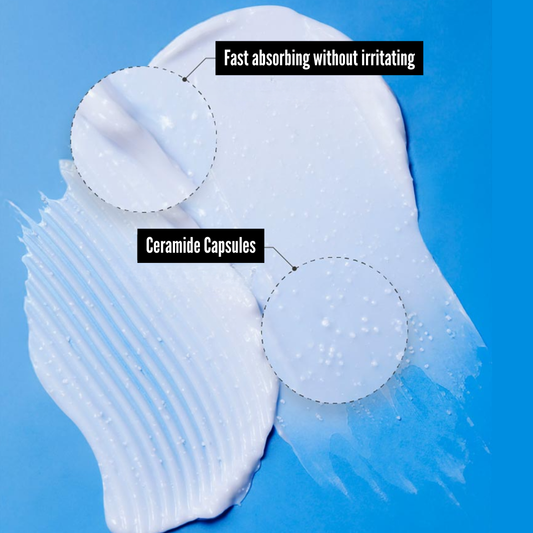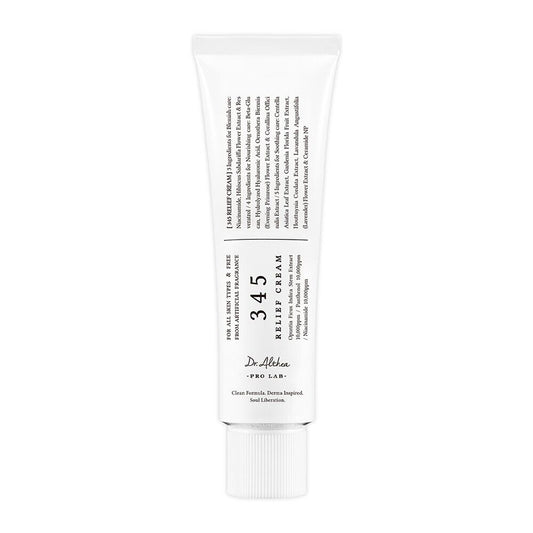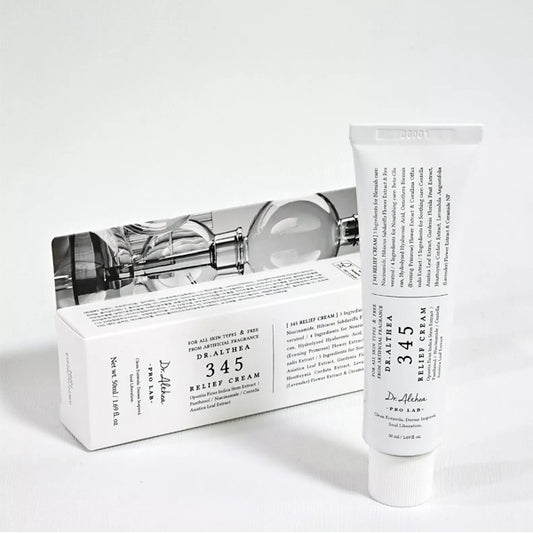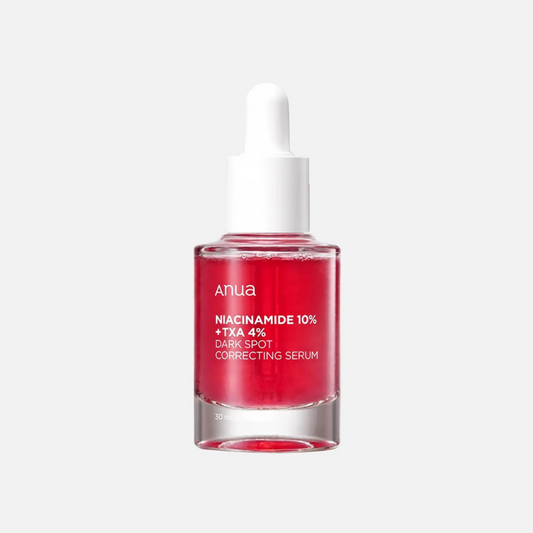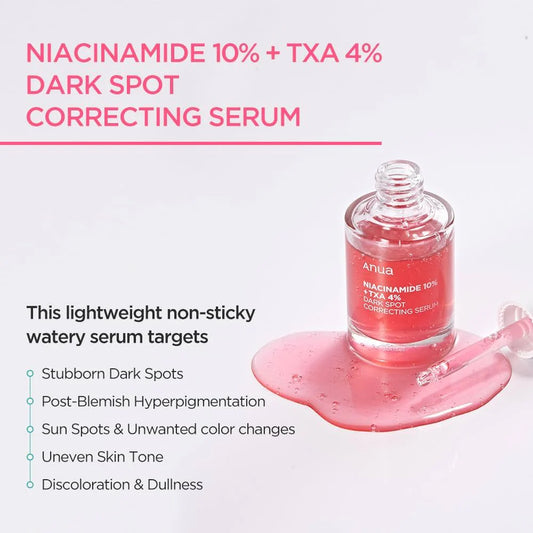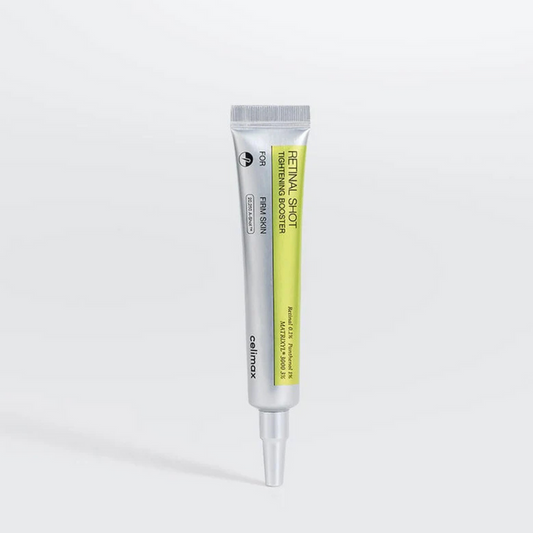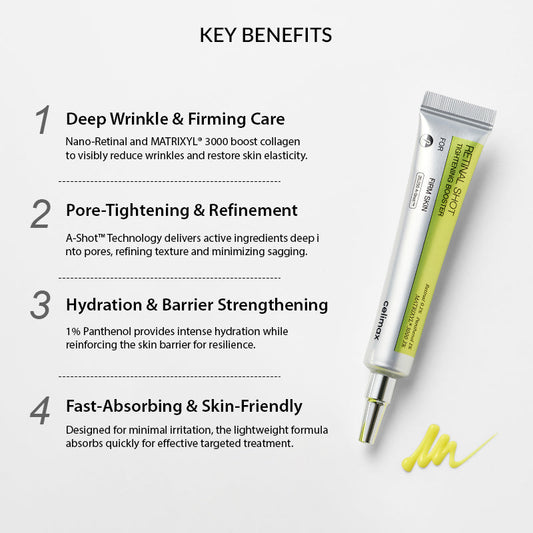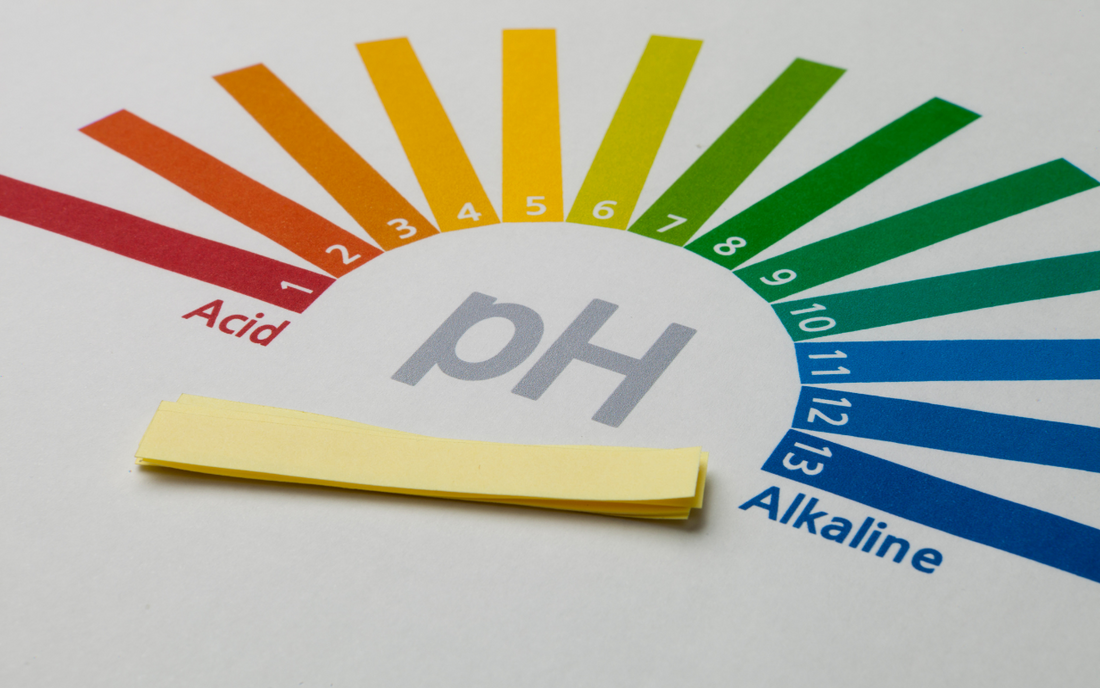
What Does pH-Balanced Mean? Why Does It Matter to My Skin?
Share
Remember pH test strips from your chemistry class? You dipped the strip into different solutions observing the colour change based on the acidity or alkalinity of a solution. Similarly, your skin has a natural pH level that impacts its health. Maintaining this balance is crucial for a healthy complexion.
What is pH?
pH stands for "potential of hydrogen" and measures how acidic or basic a substance is. The scale ranges from 0 to 14, with 7 being neutral (like pure water). Values below 7 are acidic (like lemon juice), and values above 7 are basic or alkaline (like baking soda). The further a value is from 7, the stronger the acidity or alkalinity. For example, lemon juice is very acidic (around 2), while baking soda is quite basic (around 9). Most coffees hover around a pH of 4.85 to 5.10, making them slightly acidic. 1

What is Skin pH?
Healthy skin has a slightly acidic pH, typically between 4.5 and 5.5. This "acid mantle" is a thin, protective layer on the skin's surface composed of sebum (oil), sweat, and natural skin flora. It acts as a barrier against bacteria, pollutants, and other environmental aggressors. 2

Why Does Skin pH Matter?
When your skin's pH gets disrupted, this protective barrier is compromised, making it more vulnerable to various problems:3
- Dryness and flakiness: When the skin becomes too alkaline (above pH 5.5), its ability to retain moisture is reduced. This can lead to dryness, flakiness, tightness, and even cracking.
- Inflammation and sensitivity: Extremely alkaline skin (much higher than pH 5.5) can trigger inflammation, redness, itching, and increased sensitivity to irritants. Over time, this can contribute to premature aging, including wrinkles and sagging.
- Acne: While less common, excessively acidic skin (below pH 4.5) can also cause problems. It can disrupt the skin's natural microbiome and contribute to irritation, redness, and even breakouts. However, most common acne issues are linked to a more alkaline skin surface.
What Does "pH-Balanced" Mean for Skin?
"pH-balanced" refers to skincare products formulated with a pH close to healthy skin's natural range (around 4 to 7, ideally closer to 4.5-5.5). These products are designed to respect the skin's acid mantle and minimize disruption to its natural balance.4 Using pH-balanced products can help:
- Maintain the skin's barrier function
- Prevent dryness and irritation
- Reduce the risk of breakouts
- Support healthy skin flora
- Do You Need pH-Balanced Products?
While everyone can benefit from using pH-balanced products, they are particularly important for people with sensitive skin or existing skin conditions.
- Healthy Skin: If your skin is generally healthy and balanced, you may not need to worry too much about the pH of your products. You might not experience immediate negative effects from using products with slightly higher or lower pH.
- Sensitive Skin/Skin Conditions: If you struggle with conditions like acne, eczema, rosacea, or dry, sensitive skin, using pH-balanced cleansers, serums, and moisturizers in the pH range of 4.6 to 5.5 is highly recommended. These gentler products help maintain your skin's natural barrier, minimize irritation, and support healing. Avoid harsh soaps and cleansers with high pH levels, as they can exacerbate these conditions.
Conclusion
Maintaining the skin's natural pH balance is a key factor in achieving and maintaining healthy, comfortable skin. By understanding the importance of the acid mantle and choosing pH-balanced skincare products, you can support your skin's natural defenses and minimize the risk of dryness, irritation, and other skin problems. Whether you have naturally healthy skin or manage a skin condition, opting for pH-balanced products is a worthwhile step in your skincare routine.
Frequently Asked Questions
Q: How can I tell if my skin's pH is off balance?
A: You might notice signs like excessive dryness, flakiness, tightness, redness, increased sensitivity, frequent breakouts, or a feeling of "squeaky clean" after washing (which can indicate an overly alkaline cleanser). Persistent irritation or a compromised skin barrier are also strong indicators.2
Q: Can diet affect my skin's pH?
A: While diet primarily impacts overall health, its direct and immediate impact on the external pH of your skin is generally considered minimal. The skin's acid mantle is maintained by sebaceous glands, sweat glands, and natural flora. However, a healthy diet supports overall skin health, which in turn helps its natural functions, including maintaining pH.5
Q: Do all skincare products need to be pH-balanced?
A: Ideally, products that stay on your skin for extended periods (like serums, moisturizers, and sunscreens) should be pH-balanced. Cleansers are particularly important to be pH-balanced, as they directly interact with and can strip the acid mantle. Products that are designed to be rinsed off quickly, or those with very specific active ingredients (e.g., strong chemical peels used intermittently), might have a different pH, but their overall formulation should still consider skin compatibility.2
Q: Does water hardness affect my skin's pH?

A: Yes, water hardness can influence your skin's pH. Hard water contains high levels of minerals like calcium and magnesium, which are alkaline. Washing your face with hard water regularly can temporarily raise your skin's pH, potentially disrupting the acid mantle and leading to dryness or irritation, especially for sensitive skin types.6
Q: How quickly can I restore my skin's pH balance?
A: The speed of restoration varies depending on the degree of disruption and your skin's natural resilience. With consistent use of pH-balanced products and avoiding harsh ingredients, your skin's acid mantle can begin to rebalance within a few days to a couple of weeks. Persistence is key.
Q: Are toners essential for pH balancing?
A: Historically, toners were often used to rebalance skin pH after using high-pH cleansers. With the advent of more pH-balanced cleansers, their role specifically for pH correction has diminished. However, many modern toners still offer benefits like hydration, gentle exfoliation, or delivering active ingredients, and they are typically formulated to be pH-balanced themselves.7
Q: Can extreme weather conditions affect my skin's pH?
A: Yes, extreme weather can indirectly affect your skin's pH. Cold, dry weather can compromise the skin barrier, making it more prone to dryness and pH disruption. Hot, humid weather can increase sweat production, which, depending on its composition, can also slightly alter the skin's surface pH. Protecting your skin in harsh conditions helps maintain its natural balance.8
Q: Is there a way to test my skin's pH at home?
A: While you can purchase specialized pH test strips designed for skin (which are different from general chemistry strips), their accuracy for everyday use on skin can be inconsistent due to factors like sweat, oil, and product residue. Dermatologists can measure skin pH more accurately with professional equipment. For most people, observing your skin's symptoms (dryness, sensitivity, breakouts) and adjusting your product choices is a more practical approach.9 10
Q: Can using too many products disrupt my skin's pH?
A: It's less about the number of products and more about their individual pH levels and active ingredients. Using multiple products that are all highly acidic or highly alkaline, or layering too many strong actives without proper pH consideration, could potentially disrupt your skin's balance.10Sticking to pH-balanced formulations across your routine is generally safer.
Q: Do male and female skin have different pH levels?
A: Research suggests that, on average, male skin tends to be slightly more acidic than female skin. However, these differences are usually minor, and both sexes benefit from maintaining a healthy, slightly acidic skin pH within the general range of 4.5-5.5. 11
The information provided in this article is for general knowledge and informational purposes only, and does not constitute medical advice. It is essential to consult with a qualified dermatologist for any concerns regarding your skin health, diagnosis, or treatment.
Resources
- pH, https://www.cancer.gov/publications/dictionaries/cancer-terms/def/ph
- What Is Your Skin’s pH and Why Does It Matter?, https://health.clevelandclinic.org/what-is-skin-ph
- What Is Skin pH? How to Tell if Yours Is Healthy, and Why It Matters, https://www.everydayhealth.com/skin-beauty/skin-ph-yours-healthy-why-it-matters-how-tell
- Skin pH: From Basic Science to Basic Skin Care, https://www.medicaljournals.se/acta/content/html/10.2340/00015555-1531
- Dietary Patterns Associated with Sebum Content, Skin Hydration and pH, and Their Sex-Dependent Differences in Healthy Korean Adults, https://pmc.ncbi.nlm.nih.gov/articles/PMC6471406/
- Does Hard Water Impact Eczema?, https://nationaleczema.org/blog/hard-water-eczema/
- What Experts Say About Face Toners and if You Actually Need to Use One, https://www.byrdie.com/what-does-toner-do
- How Climate Change Can Impact the Health of Your Skin, Plus What to Do About It, https://www.healthline.com/health/beauty-skin-care/how-climate-change-can-impact-the-health-of-your-skin-plus-what-to-do-about-it
- Understanding and Balancing Skin Ph, https://www.thayers.com/the-blog/the-importance-of-skin-ph
- How To Balance Your Skin's pH Levels, https://www.quenchbotanics.com/blogs/blog/how-to-balance-your-ph-skin-level
- Male versus female skin: What dermatologists and cosmeticians should know, https://pmc.ncbi.nlm.nih.gov/articles/PMC6116811/


